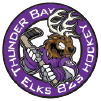Rowan’s Law: Concussion safety
Rowan’s Law is just one the many ways in which the government is committed to making sports safer in Ontario. Rowan’s Law was named for Rowan Stringer, a high school rugby player from Ottawa, who died in the spring of 2013 from a condition known as second impact syndrome (swelling of the brain caused by a subsequent injury that occurred before a previous injury healed). Rowan is believed to have experienced three concussions over six days while playing rugby. She had a concussion but didn’t know her brain needed time to heal. Neither did her parents, teachers or coaches.
All athletes under 26 years of age, parents of athletes under 18, coaches, team trainers and officials must confirm every year that they have reviewed Ontario’s Concussion Awareness Resources.
Please review the appropriate Rowan's Law booklet with each of your children playing hockey and then complete the Hockey Northwestern Ontario Rowan's Law Acknoledgement Form for each participant.
Team managers and/or coaches will be collecting the completed forms before your child can participate.
For additional information, please visit https://www.hockeyhno.com/rowanslaw or http://www.ontario.ca/concussions
About concussions
A concussion is a brain injury. It can’t be seen on X-rays, CT scans or MRIs. It may affect the way a person thinks, feels and acts.
Any blow to the head, face or neck may cause a concussion. A concussion may also be caused by a blow to the body if the force of the blow causes the brain to move around inside the skull. A concussion can happen to anyone – anywhere – including:
- at home, school or your workplace
- following a car, bike or pedestrian accident
- from participating in games, sports or other physical activity
A concussion is a serious injury. While the effects are typically short-term, a concussion can lead to long-lasting symptoms and even long-term effects.
There are many signs and symptoms of a concussion to look out for, including:
- headache
- dizziness
- ringing in the ears
- memory loss
- nausea
- light sensitivity
- drowsiness
- depression
If you notice signs of a concussion in others, or experience any of these symptoms yourself, consult with a physician or nurse practitioner.
Know the risks
You can get a concussion even if you don’t black out or lose consciousness.
Slips and falls can also increase concussion risk, especially in:
- young children
- senior citizens
Take time to heal
It is important to take time and heal if you have a concussion.
In some cases, concussions or repeat concussions can result in:
- swelling of the brain
- permanent brain damage
- death
This page is not intended to provide medical advice. For emergencies, please call 911 or go to your nearest hospital or emergency department. For advice on health care for concussion symptoms, please consult with a physician or nurse practitioner.
Emergency situations
Call 911 if the person is unconscious, has lost consciousness or had a seizure.
If they are conscious:
- visit an emergency room or primary care provider, such as your family doctor or nurse practitioner
- contact Telehealth Ontario at 1-866-797-0000 to get health advice or information
Look out for signs of a concussion in others. Symptoms may appear immediately or be felt days after an injury, especially in children and the elderly. If symptoms appear or persist, visit a physician or nurse practitioner.
